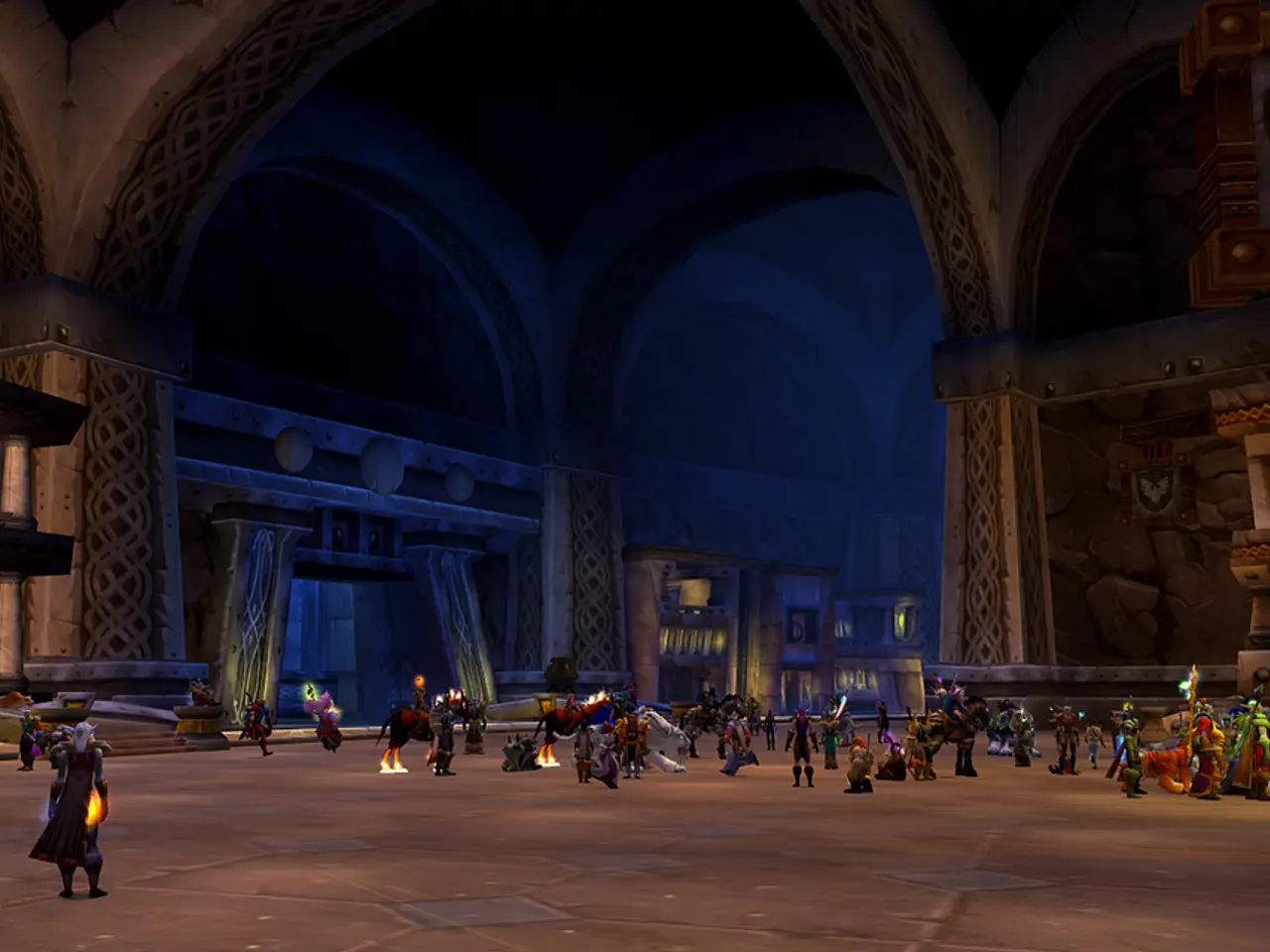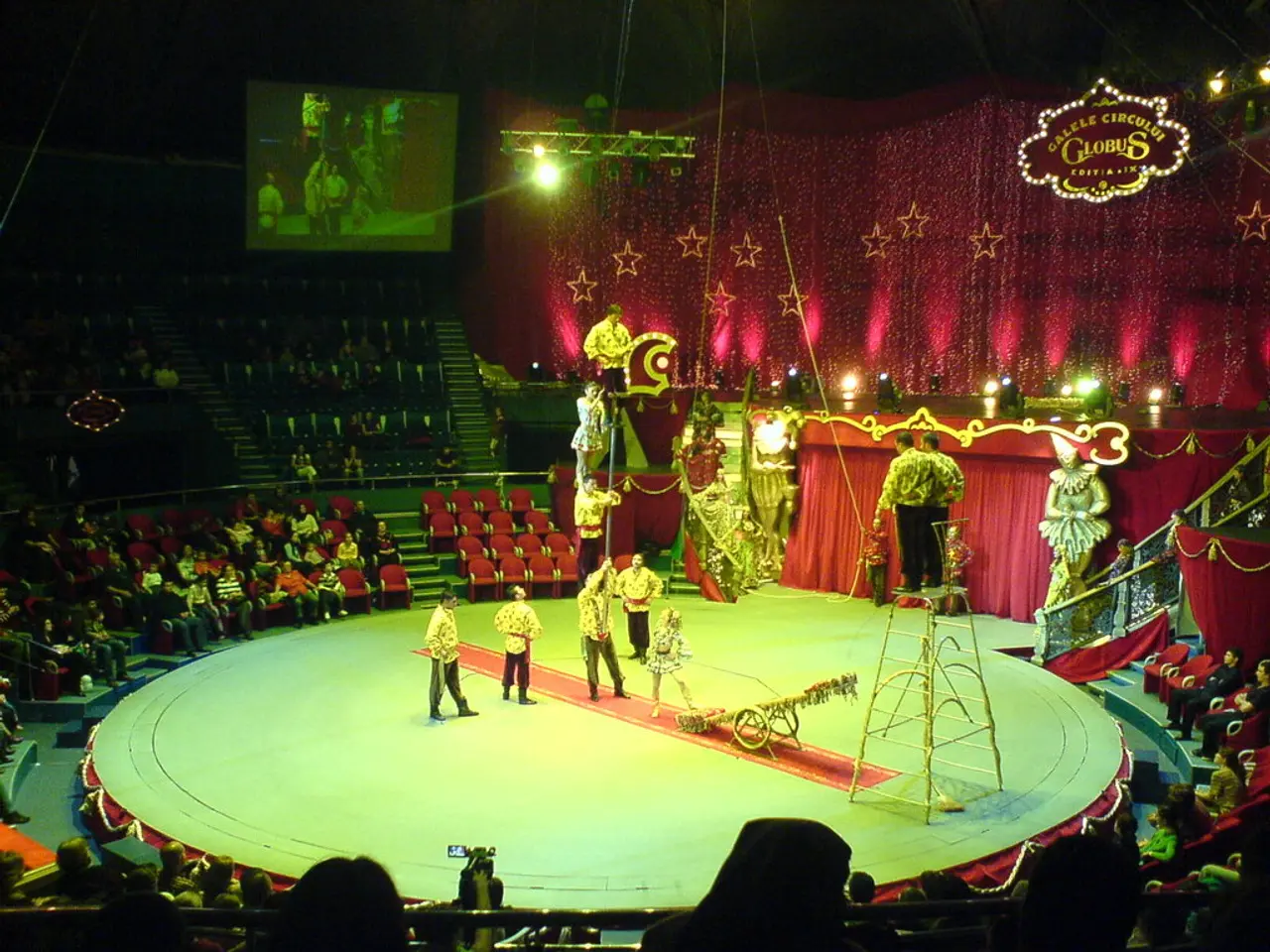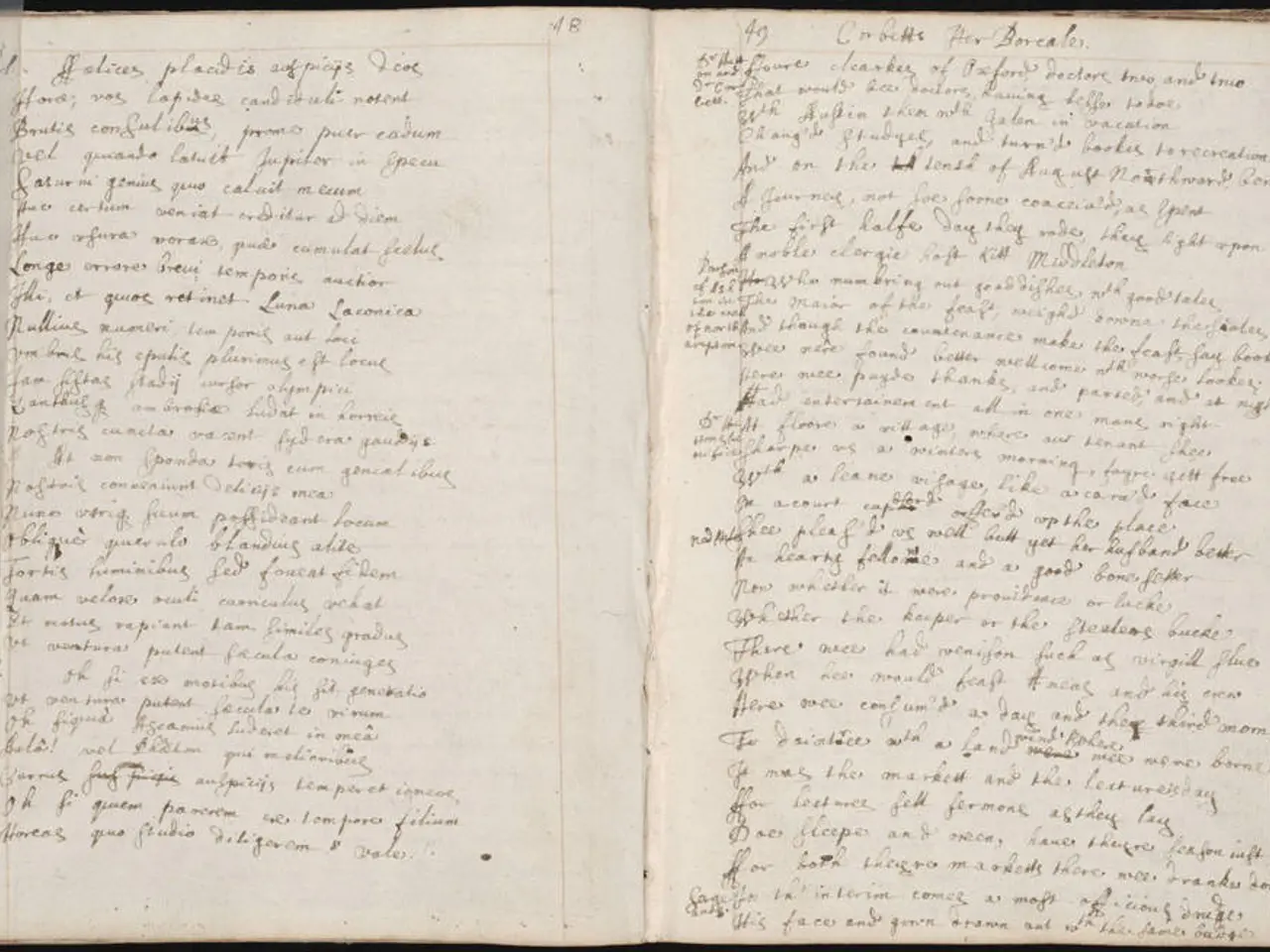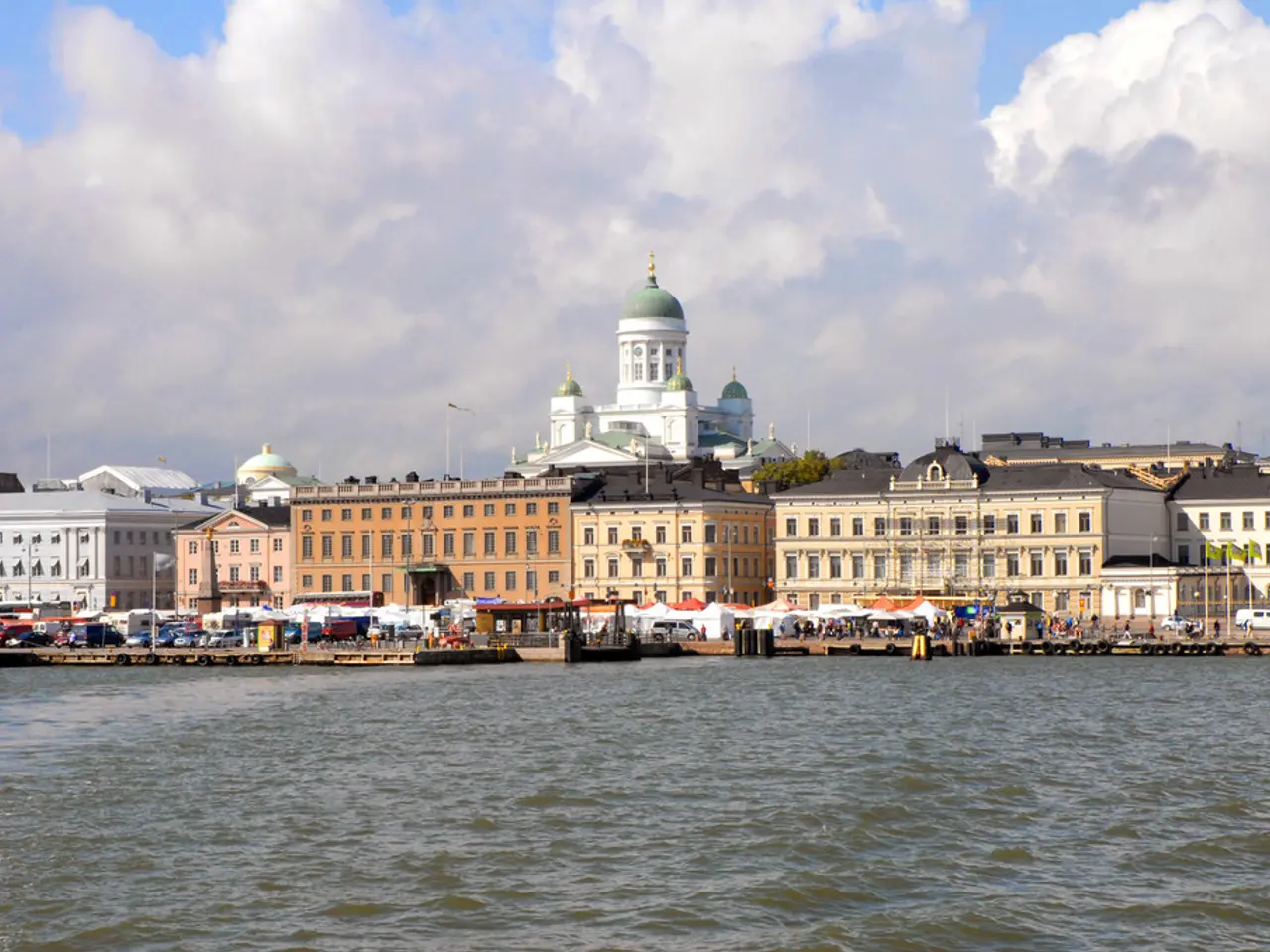The Hidden Reality of Hamlet Unveiled
In the heart of London's theatre district, on 10 June 1859, Charles Kean took the stage as Hamlet, Prince of Denmark, at the Royal Princess's Theatre. For Kean, the play was "the perfection of tragic art - the grand, the pitiful, and the terrible."
Fast forward to modern times, and Hamlet's story resonates strongly in today's world. The play, according to Kean, dramatically presents life's recurring dilemmas: the calamity of wicked government, the treachery of the envious, the primacy of virtue, and the blindness of fools.
Modern-day parallels to Shakespeare's Hamlet depict it as a reflection of contemporary anxieties such as algorithmic oversight, climate crises, and collective trauma. Hamlet's themes of grief, ethical paralysis, and fragmented memory resonate strongly in today's post-pandemic, socially disrupted world, positioning Hamlet as a symbol of existential fatigue and national mourning.
A retired CIA official, in a parallel story, returned from abroad and was shocked and disillusioned by the corruption she discovered in the intelligence community in Texas. Drawing parallels between the character’s psychological turmoil and the mental strain encountered in intelligence work, she compared her experiences to those of Hamlet. Like Hamlet, intelligence officers confront distrust, layered realities, and ethical dilemmas, often feeling overwhelmed by a sense of fractured reality and the burden of responsibility.
In the Intelligence Community, the official compared the situation to the plot in Shakespeare's Hamlet. She saw those who see and understand the corruption as Hamlet's carriers of truth. The official believed President Trump might dismantle the Intelligence Community's bureaucracies and rebuild them without partisan bias. However, she suggested building the successor organizations concurrently before the full dissolution of existing agencies, but acknowledged this as impracticable and idealistic.
The official also found solace in Kean's interpretation of Hamlet, Prince of Denmark. For Kean, the play was "a history of mind - a tragedy of thought" containing "the deepest philosophy, the most profound wisdom; yet speaks the language of the heart." The official mentioned Kean's interpretation, asserting that virtue prevails because Truth is eternal, using the example of Marcus Cicero's words influencing John Adams during the American Revolution.
In the end, the official concluded that Hamlet's final triumph was finding the truth and living by it. However, she also suggested that disillusionment gives way to depression in the face of the seemingly hopeless predicament of addressing the corruption in the Intelligence Community.
Charles Kean wrote a preface for the play, characterizing it as "the most stupendous monument of Shakespeare's genius." Today, Hamlet stands not only as a classic tragedy of personal and political betrayal but also as a modern allegory for existential disquiet, both culturally and personally.
- In today's world, Hamlet's timeless themes of personal and political betrayal find modern echoes in allegories of existential disquiet.
- The calamity of wicked government, the treachery of the envious, and the primacy of virtue remain relevant dilemmas in contemporary society.
- The intelligence community, like Hamlet, presents its agents with a labyrinth of distrust, layered realities, and ethical dilemmas.
- A former intelligence official sought solace in philosophy, drawing parallels between Hamlet's psychological turmoil and her own experiences.
- For the official, Hamlet's Shakespearean dialogue embodied the deepest philosophy and wisdom, speaking directly to the heart.
- She found inspiration in Marcus Cicero's words, influencing John Adams during the American Revolution, as a testament to the eternal nature of Truth.
- The official's personal struggle to confront corruption in the intelligence community led to feelings of disillusionment and depression.
- In spite of this, she held on to the belief that truth and virtue would ultimately prevail, citing Hamlet's triumph as an example.
- modern day parallels and analyses position Hamlet as a reflection of contemporary anxieties such as algorithmic oversight, climate crises, and collective trauma.
- In the realm of fashion-and-beauty, pop-culture, and entertainment, Hamlet is often reinterpreted through various mediums, keeping its relevance alive.
- The armed forces also grapple with aspects of Hamlet's narrative, using it to address issues of loyalty, leadership, and moral duty in military security.
- Stretching into the realm of policy-and-legislation, Hamlet serves as a cautionary tale, warning against political betrayals and the destructive consequences of tyranny.







